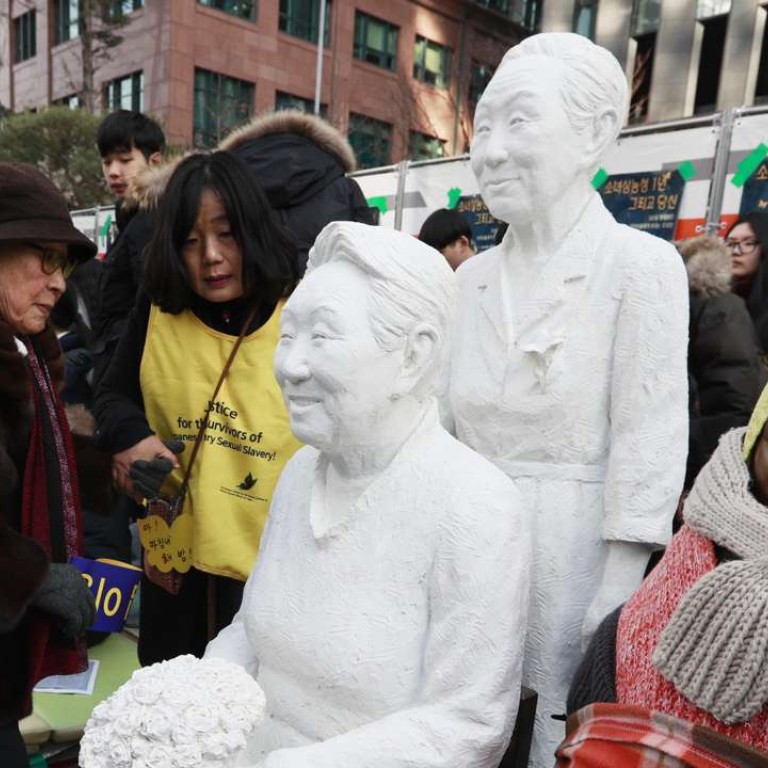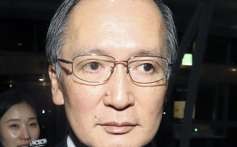
Japan recalls its ambassador to South Korea over new ‘comfort women’ statue
Tokyo says the new statue in Busan is “extremely problematic considering the agreement between Japan and South Korea” in December 2015 aimed at fully settling the issue of wartime sexual slavery
Japan has decided to temporarily recall its ambassador to South Korea, Yasumasa Nagamine, in response to the erection of a new statue dedicated to “comfort women” in the country, the government’s top spokesman said on Friday.
The statue, installed outside the Japanese consulate in the city of Busan by a civic group late last month, represents women procured for the Japanese military’s wartime brothels before and during the second world war and is of the same design as statues erected outside Japan’s embassy in Seoul and in several locations overseas.
We have repeatedly asked South Korea to handle the resolution of this issue appropriately, but the situation has not improved
Japan will also recall Yasuhiro Morimoto, its consul general in Busan, halt talks on a planned currency swap and put off high-level economic dialogue with South Korea as part of an “initial” response to the erection of the statue, chief cabinet secretary Yoshihide Suga told a press conference.
“We have repeatedly asked South Korea to handle the resolution of this issue appropriately, but the situation has not improved, so we have taken this action,” Suga said.
Suga said the new statue is “extremely problematic considering the agreement between Japan and South Korea” in December 2015 aimed at fully settling the comfort women issue.
He said the installation “exerts an undesirable effect on Japan-South Korea relations” as well as going against the Vienna Convention on Consular Relations. The convention, to which Japan and South Korea are parties, requires host nations to protect consulates against “intrusion” or disturbance of the peace.
Addressing the halting of the currency swap talks, Finance Minister Taro Aso told reporters Friday “such things can’t be made stable unless they are done having properly built a relationship of trust”.
The South Korean Foreign Ministry promptly criticized Japan’s response as “highly regrettable.”
“Even if there are difficult issues, the governments of both countries must continually develop South Korea-Japan relations based on a relationship of trust,” the ministry said.

Under the 2015 bilateral deal, South Korea set up a foundation into which Japan deposited 1 billion yen (US$8.6 million), to care for the surviving women and their families. South Korea said at the time that it will “strive to solve” the issue of the statue in Seoul “in an appropriate manner.”
According to the Japanese Foreign Ministry, US Vice-President Joe Biden told Prime Minister Shinzo Abe in a telephone call on Friday morning that the US supports the agreement and has firm hopes that Japan and South Korea will both steadily implement it.
“It continues to be important for the governments of both Japan and South Korea to take responsibility in executing [the deal], and it is not constructive to do things that run counter to that,” the ministry quoted Abe as telling Biden.
US Deputy Secretary of State Antony Blinken expressed the same view as Biden to Japanese Vice Foreign Minister Shinsuke Sugiyama in a bilateral meeting on Thursday in Washington, the ministry said.
The senior officials had met with their South Korean counterpart, First Vice Foreign Minister Lim Sung Nam, earlier on Thursday and confirmed an “unshakable” unity in responding to North Korea.

